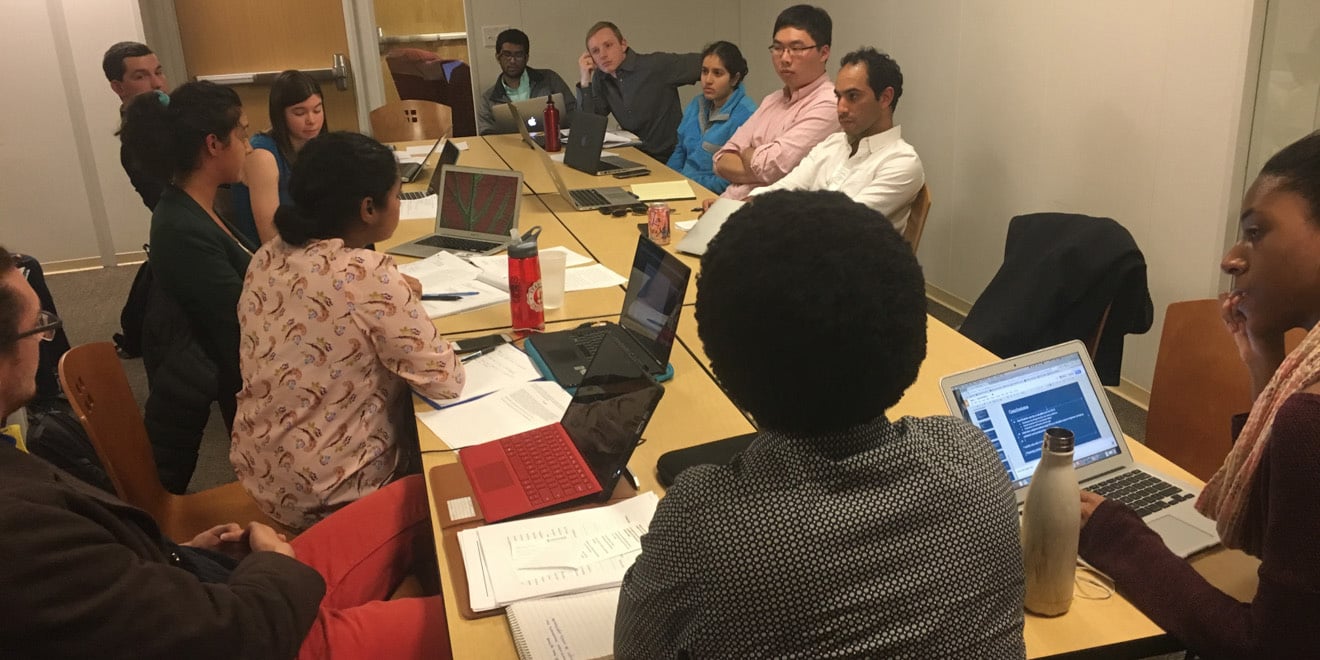On April 14, the Stanford student body elected a new cohort of Associated Students of Stanford University (ASSU) executives, Undergraduate Senate and Graduate Student Council members and class presidents.
But those aren’t the only student leaders who will make up the University’s student government next year. The Constitutional Council — a non-elected body tasked with interpreting the ASSU constitution in disputed cases — fills out the tripartite system.
Jonathan York J.D. ’18, chair of the Constitutional Council, described the body as the “judiciary branch” of the ASSU.
“We resolve disputes between different parties of the ASSU, whether it’s individual students or student organizations who have a dispute against one another,” he said.
Over recent years, the Council has ruled on a variety of cases.
In 2015, for instance, the Stanford Review filed a suit against the Stanford Students of Color Coalition (SOCC) after being denied access to SOCC’s endorsement interview records. The Council ultimately ruled in favor of SOCC.
More recently, KZSU general manager and Daily staffer Caleb Smith ’17 M.A. ’18 announced this year that he would be filing a suit against the Undergraduate Senate on behalf of the campus radio station. According to Smith, the Senate failed to post the location, time and agenda of ASSU meetings that determined the apportionment of funds recommended for KZSU between the undergraduate and graduate ballots, thereby violating the ASSU Constitution and making it less likely for the radio station to get full funding.
Last year, the Constitutional Council ruled that a bylaw mandating that at least three Senators represent the “upperclass district” applies only in elections, and not in single-seat vacancies. Jacob Randolph ’19, then a rising junior senatorial candidate, brought a suit when Lizzie Ford ’20 replaced Matthew Cohen ’18 after Cohen was appointed Chief of Staff for ASSU Exec.
Randolph argued that he had the next-highest votes of any upperclass candidate, but the Council ultimately determined that the bylaw was too vague to apply beyond elections, and members also raised concerns about the legitimacy of the bylaw itself.
Since 2014, the Constitutional Council has seen an average of one case per year.
That rate signals a shift in the presence of the Council on campus. In a 2010 letter to The Stanford Daily editor, former Council member Matthew Willmott ’11 wrote that, “before the council’s membership was refreshed last spring, not a single case had been heard in years.”
The Constitutional Council is composed of students nominated by the ASSU executives and then approved by the Undergraduate Senate and Graduate Student Council. The elected members then hold an interior vote to choose the chair of the Council, who will have the responsibility of managing incoming cases and leading the group, as well as sending out final decisions on cases.
To hear a case, the Council must be composed of at least four members. In early March, the Senate passed a resolution appointing Josie Bianchi ’20 to the Council.
“What we try to do is have the Constitutional Council be comprised [of] a variety of students that all are very thoughtful, very intentional and understand the context of the situations that they are dealing with,” said Justice Tention-Palmer ’18, who was ASSU president for the 2017-2018 academic year.
According to Smith, the Council serves an important role as an “emergency” institution.
“It’s not very well-known because it doesn’t have business too often and although the work it does is extremely important in terms of deciding vital funding questions and some cases who represents the student body… there isn’t a regular role it has,” he said. “It’s what court systems really ought to be.”
Both Tention-Palmer and York also emphasized the objective nature of the Council.
Council members “aren’t involved political parties within the ASSU,” Tention-Palmer said. “Instead they are supposed to be this objective, apolitical entity that can be fair and resolve conflicts in a just way.”
As neutral agents, Council members serve as mediators within the Stanford community.
After being part of that community for seven years, first as an undergraduate and then as a law school student, York saw a role on the Council as an opportunity to leave a positive impact on Stanford’s campus.
“[I] hope that it is a body that can help set good guidelines for the future so that there are less disputes and conflicts between groups and individuals and organizations,” he said.
York also expressed a desire for Stanford students to be aware that the Council is an accessible body that they can turn to should the need arise.
“There are so many things happening at Stanford that I think it’s easy not to be cognizant of what is available, so I hope that students know that coming to the Constitutional Council is an option if they have a dispute,” he said.
Last year, York and another Council member, Brian Baran J.D. ’18, faced threats of impeachment from the Undergraduate Senate and Graduate Student Council (GSC) after hearing the case LSJUMB/KZSU v. Undergraduate Senate, in which the Senate lost.
Senators accused York of breaking procedure in regards to giving public notice for Council meetings. The consideration of impeachment was later tabled.
According to Smith, the process of filing a suit with the Constitutional Council is relatively straightforward. The first step is to write a complaint against another entity of ASSU.
“Every student is part of the ASSU, all student groups are part of the ASSU,” Tention-Palmer explained.
After submitting the complaint, the other party has the opportunity to write a defense. After that, the Council considers “frivolity,” which refers to whether the case merits being heard. Finally, the Council hears oral arguments from the involved parties and then issues a decision.
“They try to strive for [a process that is] as simple as possible,” Smith said.
Contact Andrea Villa at acvilla ‘at stanford.edu.
